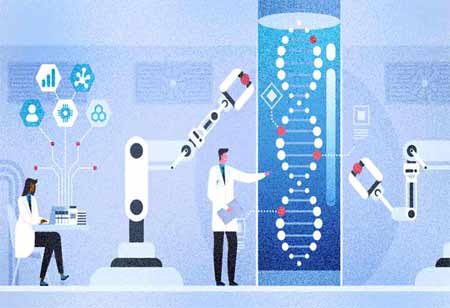Thank you for Subscribing to Healthcare Business Review Weekly Brief
Be first to read the latest tech news, Industry Leader's Insights, and CIO interviews of medium and large enterprises exclusively from Healthcare Business Review
Environmental Factors Affecting Fertility
Numerous factors influence the intricate process of conception, with the environment playing a pivotal role. While genetics and lifestyle choices undeniably impact fertility, the surrounding ecosystem significantly affects both male and female

By
Healthcare Business Review | Monday, August 05, 2024
Stay ahead of the industry with exclusive feature stories on the top companies, expert insights and the latest news delivered straight to your inbox. Subscribe today.
Fertility is influenced by environmental, genetic, and lifestyle factors, including pollution, chemical exposure, and occupational hazards. Reducing pollutants, consuming organic foods, maintaining a healthy weight, and managing stress can protect fertility.
FREMONT, CA: Numerous factors influence the intricate process of conception, with the environment playing a pivotal role. While genetics and lifestyle choices undeniably impact fertility, the surrounding ecosystem significantly affects both male and female reproductive health.
Environmental factors can significantly influence fertility through both direct and indirect mechanisms. Direct impacts include damage to reproductive organs and interference with hormone production. Indirectly, environmental factors can increase the risk of health conditions that impair fertility.
Pollution is a major environmental factor affecting fertility. Exposure to air pollution, such as particulate matter and nitrogen dioxide, has been linked to decreased sperm quality, increased risk of miscarriage, and preterm birth. Water pollution from chemicals, heavy metals, or pesticides can disrupt hormone balance and impair fertility.
Chemical exposure also poses a significant threat to reproductive health. Endocrine-disrupting chemicals (EDCs) in plastics, pesticides, and industrial chemicals can mimic or block hormones, affecting reproductive function. Heavy metals like lead, mercury, and cadmium can damage reproductive organs and impair sperm production. Moreover, certain pesticides are associated with decreased fertility, hormonal imbalances, and congenital disabilities.
Climate change contributes to fertility issues through extreme heat and natural disasters. Increased temperatures can affect sperm quality and increase the risk of infertility. Natural disasters can disrupt access to healthcare and elevate stress levels, both of which negatively impact fertility.






